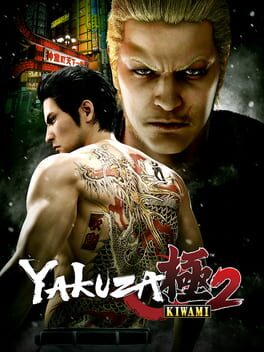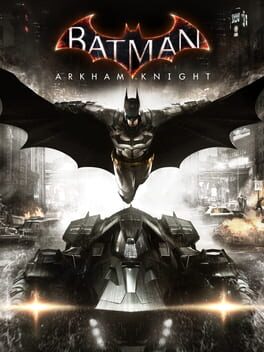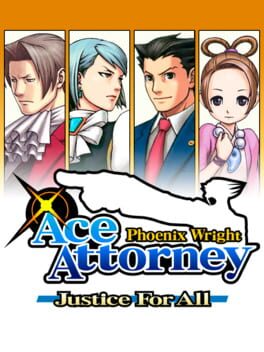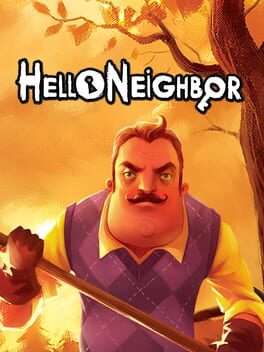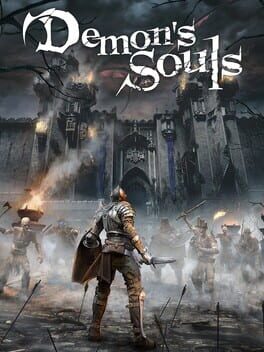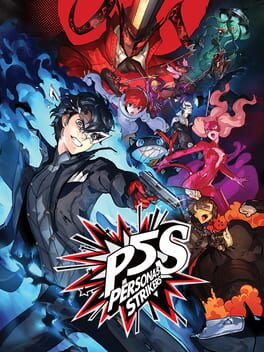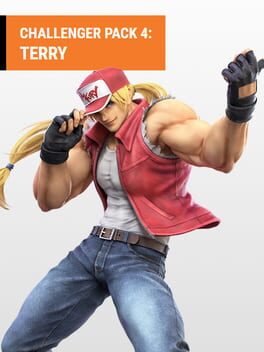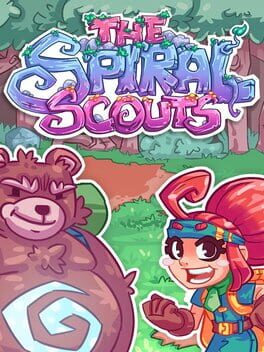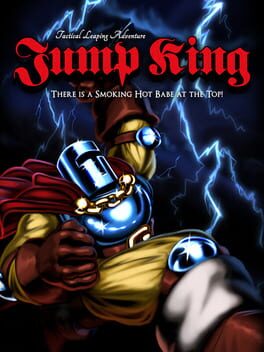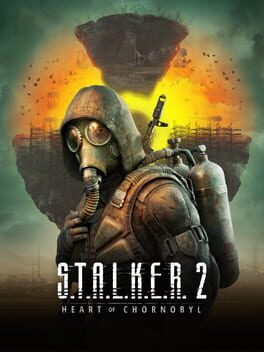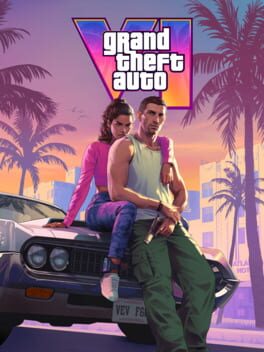TheBigBurger
2017
Probably the most contentious game I've played so far in this series, and I can absolutely understand why. A lot of what it does undermines the original game so massively in both aesthetic and tone that I can't overlook it (seriously, the music choice during the beginning of chapter 12 and near the end of chapter 16 are honestly laughable). Kiwami 1 was a flawed remake for sure, but I can easily see why this is by far the most "you either love it or hate it" game I've seen in the series yet.
The Dragon Engine looks immaculate visually and the combat has a nice, free flow to it that I really dig, but it still feels like RGG's still in the early development phase with it. It's incredibly janky, not as mechanically rich as either 0 or Kiwami 1, and it can feel a bit too easy at times. I'm sure later Dragon Engine games (the Judgment series, essentially) will do this better, but it still feels like we've got a bit to go before it's truly ready.
That all being said, I still thoroughly loved my time with this game from start to finish. Call it brainrot, call it dickriding, call it stockholm syndrome, call it whatever the fuck you want, I can't help but love Yakuza, it's my new addiction, really.
The story of Yakuza 2 is preserved here in all (or most of) its glory. Kiryu is just as strong of a character as he's always been, and I love seeing his ideology being tested at every turn. It's great to see some pushback to his sense of honor, and watching him overcome all of that in the end and come out a stronger person will never not be heart-wrenchingly satisfying. Ryuji is the biggest contributor to this, as he's an amazing foil to Kiryu (probably the best in the series), boasting his own unique sense of honor that clashes perfectly with Kiryu's, as he's more vain and greedy, having yet to understand Kiryu's more pure and true sense of honor.
Also speaking of Ryuji, can I just say that he's honestly one of the most entertaining characters in this franchise. From his phenomenal voice performance, to his arrogant, RAW personality, every scene he showed up in had my full attention throughout. And I loved when the game blew past his arrogance and badassery and allowed me to genuinely sympathize with and understand him on a closer, more personal level, which only added to the INCREDIBLE finale this game contains (seriously, that final boss was insane).
I'm not sure if I prefer him or Yakuza 1's villain more yet, but I'm absolutely delighted that the series has failed to disappoint with its major villains so far, and I hope that continues.
Also really loved Sayama's character. Following her as she learned about her past and developed a genuinely touching, heartfelt bond with Kiryu served to be the surprising emotional core of this story, and I loved it. Her personality's got that signature Yakuza rawness with a feminine touch, but she was nuanced in her writing to where it felt like more than just flash without any substance (and fighting with her was always cool as hell), and her arc is just great.
And yeah, despite my grievances with the combat, what I said about the Dragon Engine's visuals is still totally true. The cutscenes and dynamic intros have never looked better, to be honest (final boss's dynamic intro and final QTE were especially phenomenal) and they always succeeded at getting me hype, or immersing me in the moment.
So overall, while I do absolutely understand why someone would find this remake to be vastly inferior to the original (I would probably end up agreeing with that notion myself if I ever do get to playing it), and disliking or even hating it as a result, I'm so glad that I finally played this game. It provided me with enormous joy as I experienced this story and saw these characters unravel once more. I look forward to what the rest of the series has to offer, but I can safely say that the Kiwami games, while not perfect by any means, helped continue my unwavering love for this series and I could not be more thankful for that.
The Dragon Engine looks immaculate visually and the combat has a nice, free flow to it that I really dig, but it still feels like RGG's still in the early development phase with it. It's incredibly janky, not as mechanically rich as either 0 or Kiwami 1, and it can feel a bit too easy at times. I'm sure later Dragon Engine games (the Judgment series, essentially) will do this better, but it still feels like we've got a bit to go before it's truly ready.
That all being said, I still thoroughly loved my time with this game from start to finish. Call it brainrot, call it dickriding, call it stockholm syndrome, call it whatever the fuck you want, I can't help but love Yakuza, it's my new addiction, really.
The story of Yakuza 2 is preserved here in all (or most of) its glory. Kiryu is just as strong of a character as he's always been, and I love seeing his ideology being tested at every turn. It's great to see some pushback to his sense of honor, and watching him overcome all of that in the end and come out a stronger person will never not be heart-wrenchingly satisfying. Ryuji is the biggest contributor to this, as he's an amazing foil to Kiryu (probably the best in the series), boasting his own unique sense of honor that clashes perfectly with Kiryu's, as he's more vain and greedy, having yet to understand Kiryu's more pure and true sense of honor.
Also speaking of Ryuji, can I just say that he's honestly one of the most entertaining characters in this franchise. From his phenomenal voice performance, to his arrogant, RAW personality, every scene he showed up in had my full attention throughout. And I loved when the game blew past his arrogance and badassery and allowed me to genuinely sympathize with and understand him on a closer, more personal level, which only added to the INCREDIBLE finale this game contains (seriously, that final boss was insane).
I'm not sure if I prefer him or Yakuza 1's villain more yet, but I'm absolutely delighted that the series has failed to disappoint with its major villains so far, and I hope that continues.
Also really loved Sayama's character. Following her as she learned about her past and developed a genuinely touching, heartfelt bond with Kiryu served to be the surprising emotional core of this story, and I loved it. Her personality's got that signature Yakuza rawness with a feminine touch, but she was nuanced in her writing to where it felt like more than just flash without any substance (and fighting with her was always cool as hell), and her arc is just great.
And yeah, despite my grievances with the combat, what I said about the Dragon Engine's visuals is still totally true. The cutscenes and dynamic intros have never looked better, to be honest (final boss's dynamic intro and final QTE were especially phenomenal) and they always succeeded at getting me hype, or immersing me in the moment.
So overall, while I do absolutely understand why someone would find this remake to be vastly inferior to the original (I would probably end up agreeing with that notion myself if I ever do get to playing it), and disliking or even hating it as a result, I'm so glad that I finally played this game. It provided me with enormous joy as I experienced this story and saw these characters unravel once more. I look forward to what the rest of the series has to offer, but I can safely say that the Kiwami games, while not perfect by any means, helped continue my unwavering love for this series and I could not be more thankful for that.
2007
(I do plan on making a longer review for this game at some point after playing through Persona 3 Portable.)
Persona 3 is honestly kind of a miracle of a game for me. It's one that I could've easily skipped over, as I wrote it off due to how it looked aged to hell to me and not being particularly impressed with P4 despite how highly regarded that game is, and worrying P3 would be the same.
But in April of last year, just over one month after the Promised Day, and after close friends constantly pushed the agenda, I finally began streaming it.
And I am unbelievably thankful that I did, because it ended up being one of my most cherished gaming experiences I'd ever have. And so, seeing as today is The Promised Day, I'd like to take some time to show my appreciation for this story’s characters and explain just a little bit of why I think this game boasts one of the finest casts in gaming.
Persona 3 is a game that often gets flak for being overly slow or dragging in the earlier parts of the game. And while I certainly agree that the first half is noticeably slower than the godly second, I don't agree with the notion that the game drags in its writing.
I love how focused the game is in establishing its characters, relationships, dynamics, and especially their flaws and how said they impact how they interact with each other, in these earlier months of the game. Whether it be Yukari's loneliness combined with her fear of letting people get too close to her, Junpei's selfish reasons for joining SEES being that he seeks validation and recognition for others, along with how second-rate he feels compared to the protagonist, or Mitsuru's social awkwardness leading her to come off as overly cold and unapproachable in the eyes of her teammates. Every character present in this cast is rich with nuance, struggle, and dynamism, consistently growing as people as the story progresses.
For these reasons, the characters were able to feel real to me. They stopped being dumb anime game caricatures and managed to feel like actual, genuine people that could think and react like a person would. For this reason, I was more invested in this game’s cast than either 4 or 5’s. And watching them all grow as people and friends was incredibly gripping.
As someone who loves it when games feel down to Earth and “human”, I was more than satisfied with how Persona 3 explored its characters, how we deal with loss, and how our lives are finite and we should appreciate what time we have while we have it. I’m so thankful I was finally able to experience a March 5th as an OFFICIAL Persona fan, and while I jokingly slander it, I am eternally grateful that I could share it with so many of my genuinely beloved friends through streaming it.
I love Persona 3.
Persona 3 is honestly kind of a miracle of a game for me. It's one that I could've easily skipped over, as I wrote it off due to how it looked aged to hell to me and not being particularly impressed with P4 despite how highly regarded that game is, and worrying P3 would be the same.
But in April of last year, just over one month after the Promised Day, and after close friends constantly pushed the agenda, I finally began streaming it.
And I am unbelievably thankful that I did, because it ended up being one of my most cherished gaming experiences I'd ever have. And so, seeing as today is The Promised Day, I'd like to take some time to show my appreciation for this story’s characters and explain just a little bit of why I think this game boasts one of the finest casts in gaming.
Persona 3 is a game that often gets flak for being overly slow or dragging in the earlier parts of the game. And while I certainly agree that the first half is noticeably slower than the godly second, I don't agree with the notion that the game drags in its writing.
I love how focused the game is in establishing its characters, relationships, dynamics, and especially their flaws and how said they impact how they interact with each other, in these earlier months of the game. Whether it be Yukari's loneliness combined with her fear of letting people get too close to her, Junpei's selfish reasons for joining SEES being that he seeks validation and recognition for others, along with how second-rate he feels compared to the protagonist, or Mitsuru's social awkwardness leading her to come off as overly cold and unapproachable in the eyes of her teammates. Every character present in this cast is rich with nuance, struggle, and dynamism, consistently growing as people as the story progresses.
For these reasons, the characters were able to feel real to me. They stopped being dumb anime game caricatures and managed to feel like actual, genuine people that could think and react like a person would. For this reason, I was more invested in this game’s cast than either 4 or 5’s. And watching them all grow as people and friends was incredibly gripping.
As someone who loves it when games feel down to Earth and “human”, I was more than satisfied with how Persona 3 explored its characters, how we deal with loss, and how our lives are finite and we should appreciate what time we have while we have it. I’m so thankful I was finally able to experience a March 5th as an OFFICIAL Persona fan, and while I jokingly slander it, I am eternally grateful that I could share it with so many of my genuinely beloved friends through streaming it.
I love Persona 3.
SPOILERS FOR CASE 3 OF ACE ATTORNEY 2
Coming right off of my Ace Attorney 1 replay and just loving that game to death, I admittedly had some preconceived thoughts about Justice for All. I was under the impression that it was merely a subpar follow-up to the original game whose only notable addition to the series was the revered Farewell, My Turnabout case. Having heard these thoughts repeated ad infinitum, I was genuinely not looking forward to getting into this game. I even dropped it just under a year ago after getting less than halfway through the second case because my ass was just not feeling it. I will say, dropping the game was probably the best choice I could've made for maximizing my enjoyment of it, because I was in a much more receptive, accepting mindset towards it this time around. I stopped being a sheep and just played the game hoping I'd at least be entertained. And coming out of it, I can say that I was more than just entertained.
With all that setup in mind, how does the game actually stack up? Well, in many places, this game has both the best and worst shit I've seen in the series up until this point. A game of highs and lows, if you will. And frankly, no case in the entire game exemplifies this idea to such an extreme extent and my experience with JFA as a whole, better than the notorious Turnabout Big Top case, which is why I want to focus in on it specifically, as opposed to going in chronological order of each case.
I had heard so much bad stuff about this case before starting it that I was honestly a little nervous that this would be another point where I might consider dropping the game for almost a year again. I had thoroughly enjoyed the previous case and was hoping I wouldn’t share the complaints I had heard other people have for this next one. And for the first half of the case? Most of the complaints I had heard rang absolutely true and THEN SOME. Turnabout Big Top starts off with an unbearably long low point that lasts all the way throughout the first trial day. Now, Ace Attorney is known for having wacky, zany, over-the-top characters, and I’ve always considered that to be one of its strengths that makes it infinitely charming to me. However, this case officially takes it all much too far. The client for this case, Maximillion Galactica has a neat design, but good God, after more than a few minutes of interacting with him, I just wanted him to shut up. He attempts to feel “flashy”, but all of that flash just burned my eyes out in frustration at how flat of a character he actually was. You could replace him with a stock image of a lamppost and I genuinely think the case would greatly benefit from it. And don’t even get me started with how he (and one other character) is lusting after an actual SIXTEEN-YEAR OLD. Like holy shit, how was I expected to want this guy to be anywhere other than prison? Need an alternate ending where Phoenix, after finding this out, purposefully helps put him in jail where he belongs tbh!!!!!!
Anyways, Max is ass but the next character I want to focus on is Ben the Ventriloquist. He is an equally worthless character who tries too hard to have some charming gimmick with his puppet and ends up being yet another uncomfortable personality in how he’s a grown-ass, 31 year old MAN trying to marry a fucking 16 year old girl. And honestly, I generally try to look past shit like this in stories if there’s at least decent writing behind it, but the whole love triangle between him, Max, and Regina feels so out of left field, unnecessary, and crammed in your face that it’s impossible for me not to ignore. His whole puppet schtick was extremely unbearable as well. I never found him funny or entertaining in the slightest. These two characters are possibly my least favorite in the series by a wide margin. They’re an attempt at charming, wacky characters, but they both fall flat on their faces by being so genuinely unlikable and irritating.
Those two are at the core of most of my issues with this case because the entirety of the plot surrounding them was inherently brought down by their mere association. The actual mystery at this point in the story wasn’t doing me any favors either as most of the first day dragged its feet, feeling less like a mystery and more like a washed up, unfunny circus routine (which I suppose is fitting).
My enjoyment of the series had never been lower, and I even considered skimming through dialogue just to get past this tedious, unbearable case.
But then something really strange happened.
Turnabout Big Top
Got good.
The difference in quality between the first and second days cannot be understated. For the most part, the terrible characters I mentioned before have very, very little screentime. And the characters that actually DO get focus are not only compelling, but genuinely emotionally gripping, incredibly charming, and actually likable. Moe the Clown, a character that initially caused me the same level of irritation as Max and Ben due to his eye-burning design and unfunny gimmick, became a surprisingly touching character when all he wanted was to help Regina come to terms with her father’s death, rather than allow her to stay in blissful ignorance. It was a turn for his character that I didn’t expect at all, but it helped elevate my emotional engagement with the case and him as a character, so I’m all for it. And speaking of Regina, she was pretty much the only character introduced in the first day of the case that I actually liked. She was a bit of a brat, yeah, but I could tell that she meant well and she was absolutely adorable. It was abundantly clear that she lived a spoiled, sheltered life, but I couldn’t help but feel for the poor girl in spite of that. Her father had just been killed, but she hardly seemed to really comprehend the gravity of that fact. While she was undoubtedly a very “cute” character, it’s the juxtaposition of that and this undercurrent of somberness that was prevalent in most of her scenes that really helped me connect with her. And finally, we have Acro the Acrobat.
What a phenomenal killer.
Like no other killer before or after him, Acro stands tall as possibly THE MOST tragic and sympathetic character in the series up until this point. In contrast to the previously over-the-top characters, Acro instantly stands out from the moment we first meet him. He’s not some loudmouthed, unfunny CLOD like most of the others, he’s gentle and soft-spoken, with birds sitting with him on his wheelchair highlighting the tranquil, calming energy that his personality gives off. Despite this, there’s this general feeling of sadness that pervades all of his scenes, much like Regina. This gives the two of them a sort of connective tissue, as their role in the story would become more pronounced as it reached its climax.
Acro brings a lot of emotional depth to this case that I haven’t really felt with other killers in this series, even the best ones. He’s possibly the most unique killer the series has seen yet, thanks to his heartbreaking circumstances and understandable motives. He’s just a broken man who lost everything because of one girl’s naïveté, but he understandably cannot bring himself to forgive her for it, despite knowing deep down that what he wants to do is wrong, without doubt. It is a very mature idea for this series to tackle and I think it’s an incredibly “human” concept.
Even if it’s not on the scale of outright murder, there do come times where someone wrongs us in ways that we simply cannot reconcile with, even if it was unintentional on their part. Sometimes we’re hurt so profoundly by someone that it can make us someone we’re not, we lose the ability to understand, to empathize. Blinded by hatred, Acro ended up accidentally killing the man that meant the most to him. The man that gave him and his, now comatose, brother a chance when everyone had abandoned him before. He not only hurt himself in doing this, but wrongfully took the father of an innocent young girl who could barely even comprehend what had happened.
And when it’s finally time to corner him in the trial, and Phoenix exposes his crimes, there’s no twist “unmasking” where he reveals that he was actually crazy the whole time and laughs maniacally while cursing Phoenix for foiling his plan.
All we get are tears.
A sea of tears from a broken man who couldn’t let go of his hatred and heartbreak. Tears from a broken man who couldn’t find it in himself to understand the person who hurt him so much. And in his sadness and newfound self-hatred, he’s taken away, forced to think about what he did for the foreseeable future, with the audience never knowing for sure if he’ll find peace.
What a special, special character.
THAT is how you write a compelling, layered, and emotionally-investing antagonist. He has a sympathetic, sufficiently-explored backstory that informs his motive, and we may not agree with what he does, but we can certainly understand his actions as a result. These certainly aren’t the only way to effectively write an antagonist, but I cannot sing Acro’s praises enough, he almost single-handedly flipped my view on this case.
After the dust settles, Regina, after watching all of this unfold, is unable to continue with the blissful ignorance that had defined her character at the beginning of this case. She weeps, she shouts, she blames herself for what happened, and still has trouble wrapping her head around it, but she can finally begin to accept what happened to her father. And with that, the process of healing can begin, and she can grow as a person as she plans to right her wrong, and this most intriguing case can finally end on a hopeful note.
When all is said and done, Turnabout Big Top ended up being the biggest surprise in the game by far. A difficult case to truly explain my thoughts on. One I vehemently hate and undeniably love in equal regards. It truly had some abysmal lows that I absolutely cannot forgive. The characters in the first half, the mystery being nonsensical for the most part throughout (even in the second half), and don’t even get me started on the annoying ass cross-exam where you lose health JUST FOR PRESSING MOE. I can 100% understand why someone would look at this shit and say this is the worst case in the whole trilogy.
But at the same time. I respect and appreciate so much of what that second half manages to accomplish that I can’t, in good faith, agree with the majority of people here.
And that’s kind of how I feel about this game as a whole (just to a much less extreme extent). There were times during some of the cases early on that felt a bit padded or aimless. The music of the game is a noticeable downgrade from Ace Attorney 1’s soundtrack, I feel. But similarly to how I feel about TBT, I really do believe that the highs of this game are more than enough to make up for its unfortunate missteps.
Franziska might not have the complexity that Edgeworth did in the first game, but she’s still a damn entertaining prosecutor with a great design that I thoroughly enjoyed arguing against. Speaking of Edgeworth, his return in this game was everything I could’ve hoped it would be. Picking up right from where he left off in the first game, it truly felt like he’s grown and matured as a person, cultivating an ideology that shakes Phoenix to his core. And how could I forget that last case that everyone RIGHTFULLY hypes up so much? It is quite confidently one of the finest stories this series has produced yet. Boasting a deliciously devilish villain that caused my jaw to hit the floor on multiple occasions, the most urgency, tension and suspense in an AA case so far with how it was a constant race against time, and an unbelievably satisfying finale that had me out of my seat and on the brink of tears at every step (while also giving Franziska some much-appreciated development).
So all in all, I left Justice for All incredibly satisfied and impressed, thankful to have stuck with it through to the end. Because I don’t care what anybody says, this is a good ass game and a worthy sequel to the first.
Coming right off of my Ace Attorney 1 replay and just loving that game to death, I admittedly had some preconceived thoughts about Justice for All. I was under the impression that it was merely a subpar follow-up to the original game whose only notable addition to the series was the revered Farewell, My Turnabout case. Having heard these thoughts repeated ad infinitum, I was genuinely not looking forward to getting into this game. I even dropped it just under a year ago after getting less than halfway through the second case because my ass was just not feeling it. I will say, dropping the game was probably the best choice I could've made for maximizing my enjoyment of it, because I was in a much more receptive, accepting mindset towards it this time around. I stopped being a sheep and just played the game hoping I'd at least be entertained. And coming out of it, I can say that I was more than just entertained.
With all that setup in mind, how does the game actually stack up? Well, in many places, this game has both the best and worst shit I've seen in the series up until this point. A game of highs and lows, if you will. And frankly, no case in the entire game exemplifies this idea to such an extreme extent and my experience with JFA as a whole, better than the notorious Turnabout Big Top case, which is why I want to focus in on it specifically, as opposed to going in chronological order of each case.
I had heard so much bad stuff about this case before starting it that I was honestly a little nervous that this would be another point where I might consider dropping the game for almost a year again. I had thoroughly enjoyed the previous case and was hoping I wouldn’t share the complaints I had heard other people have for this next one. And for the first half of the case? Most of the complaints I had heard rang absolutely true and THEN SOME. Turnabout Big Top starts off with an unbearably long low point that lasts all the way throughout the first trial day. Now, Ace Attorney is known for having wacky, zany, over-the-top characters, and I’ve always considered that to be one of its strengths that makes it infinitely charming to me. However, this case officially takes it all much too far. The client for this case, Maximillion Galactica has a neat design, but good God, after more than a few minutes of interacting with him, I just wanted him to shut up. He attempts to feel “flashy”, but all of that flash just burned my eyes out in frustration at how flat of a character he actually was. You could replace him with a stock image of a lamppost and I genuinely think the case would greatly benefit from it. And don’t even get me started with how he (and one other character) is lusting after an actual SIXTEEN-YEAR OLD. Like holy shit, how was I expected to want this guy to be anywhere other than prison? Need an alternate ending where Phoenix, after finding this out, purposefully helps put him in jail where he belongs tbh!!!!!!
Anyways, Max is ass but the next character I want to focus on is Ben the Ventriloquist. He is an equally worthless character who tries too hard to have some charming gimmick with his puppet and ends up being yet another uncomfortable personality in how he’s a grown-ass, 31 year old MAN trying to marry a fucking 16 year old girl. And honestly, I generally try to look past shit like this in stories if there’s at least decent writing behind it, but the whole love triangle between him, Max, and Regina feels so out of left field, unnecessary, and crammed in your face that it’s impossible for me not to ignore. His whole puppet schtick was extremely unbearable as well. I never found him funny or entertaining in the slightest. These two characters are possibly my least favorite in the series by a wide margin. They’re an attempt at charming, wacky characters, but they both fall flat on their faces by being so genuinely unlikable and irritating.
Those two are at the core of most of my issues with this case because the entirety of the plot surrounding them was inherently brought down by their mere association. The actual mystery at this point in the story wasn’t doing me any favors either as most of the first day dragged its feet, feeling less like a mystery and more like a washed up, unfunny circus routine (which I suppose is fitting).
My enjoyment of the series had never been lower, and I even considered skimming through dialogue just to get past this tedious, unbearable case.
But then something really strange happened.
Turnabout Big Top
Got good.
The difference in quality between the first and second days cannot be understated. For the most part, the terrible characters I mentioned before have very, very little screentime. And the characters that actually DO get focus are not only compelling, but genuinely emotionally gripping, incredibly charming, and actually likable. Moe the Clown, a character that initially caused me the same level of irritation as Max and Ben due to his eye-burning design and unfunny gimmick, became a surprisingly touching character when all he wanted was to help Regina come to terms with her father’s death, rather than allow her to stay in blissful ignorance. It was a turn for his character that I didn’t expect at all, but it helped elevate my emotional engagement with the case and him as a character, so I’m all for it. And speaking of Regina, she was pretty much the only character introduced in the first day of the case that I actually liked. She was a bit of a brat, yeah, but I could tell that she meant well and she was absolutely adorable. It was abundantly clear that she lived a spoiled, sheltered life, but I couldn’t help but feel for the poor girl in spite of that. Her father had just been killed, but she hardly seemed to really comprehend the gravity of that fact. While she was undoubtedly a very “cute” character, it’s the juxtaposition of that and this undercurrent of somberness that was prevalent in most of her scenes that really helped me connect with her. And finally, we have Acro the Acrobat.
What a phenomenal killer.
Like no other killer before or after him, Acro stands tall as possibly THE MOST tragic and sympathetic character in the series up until this point. In contrast to the previously over-the-top characters, Acro instantly stands out from the moment we first meet him. He’s not some loudmouthed, unfunny CLOD like most of the others, he’s gentle and soft-spoken, with birds sitting with him on his wheelchair highlighting the tranquil, calming energy that his personality gives off. Despite this, there’s this general feeling of sadness that pervades all of his scenes, much like Regina. This gives the two of them a sort of connective tissue, as their role in the story would become more pronounced as it reached its climax.
Acro brings a lot of emotional depth to this case that I haven’t really felt with other killers in this series, even the best ones. He’s possibly the most unique killer the series has seen yet, thanks to his heartbreaking circumstances and understandable motives. He’s just a broken man who lost everything because of one girl’s naïveté, but he understandably cannot bring himself to forgive her for it, despite knowing deep down that what he wants to do is wrong, without doubt. It is a very mature idea for this series to tackle and I think it’s an incredibly “human” concept.
Even if it’s not on the scale of outright murder, there do come times where someone wrongs us in ways that we simply cannot reconcile with, even if it was unintentional on their part. Sometimes we’re hurt so profoundly by someone that it can make us someone we’re not, we lose the ability to understand, to empathize. Blinded by hatred, Acro ended up accidentally killing the man that meant the most to him. The man that gave him and his, now comatose, brother a chance when everyone had abandoned him before. He not only hurt himself in doing this, but wrongfully took the father of an innocent young girl who could barely even comprehend what had happened.
And when it’s finally time to corner him in the trial, and Phoenix exposes his crimes, there’s no twist “unmasking” where he reveals that he was actually crazy the whole time and laughs maniacally while cursing Phoenix for foiling his plan.
All we get are tears.
A sea of tears from a broken man who couldn’t let go of his hatred and heartbreak. Tears from a broken man who couldn’t find it in himself to understand the person who hurt him so much. And in his sadness and newfound self-hatred, he’s taken away, forced to think about what he did for the foreseeable future, with the audience never knowing for sure if he’ll find peace.
What a special, special character.
THAT is how you write a compelling, layered, and emotionally-investing antagonist. He has a sympathetic, sufficiently-explored backstory that informs his motive, and we may not agree with what he does, but we can certainly understand his actions as a result. These certainly aren’t the only way to effectively write an antagonist, but I cannot sing Acro’s praises enough, he almost single-handedly flipped my view on this case.
After the dust settles, Regina, after watching all of this unfold, is unable to continue with the blissful ignorance that had defined her character at the beginning of this case. She weeps, she shouts, she blames herself for what happened, and still has trouble wrapping her head around it, but she can finally begin to accept what happened to her father. And with that, the process of healing can begin, and she can grow as a person as she plans to right her wrong, and this most intriguing case can finally end on a hopeful note.
When all is said and done, Turnabout Big Top ended up being the biggest surprise in the game by far. A difficult case to truly explain my thoughts on. One I vehemently hate and undeniably love in equal regards. It truly had some abysmal lows that I absolutely cannot forgive. The characters in the first half, the mystery being nonsensical for the most part throughout (even in the second half), and don’t even get me started on the annoying ass cross-exam where you lose health JUST FOR PRESSING MOE. I can 100% understand why someone would look at this shit and say this is the worst case in the whole trilogy.
But at the same time. I respect and appreciate so much of what that second half manages to accomplish that I can’t, in good faith, agree with the majority of people here.
And that’s kind of how I feel about this game as a whole (just to a much less extreme extent). There were times during some of the cases early on that felt a bit padded or aimless. The music of the game is a noticeable downgrade from Ace Attorney 1’s soundtrack, I feel. But similarly to how I feel about TBT, I really do believe that the highs of this game are more than enough to make up for its unfortunate missteps.
Franziska might not have the complexity that Edgeworth did in the first game, but she’s still a damn entertaining prosecutor with a great design that I thoroughly enjoyed arguing against. Speaking of Edgeworth, his return in this game was everything I could’ve hoped it would be. Picking up right from where he left off in the first game, it truly felt like he’s grown and matured as a person, cultivating an ideology that shakes Phoenix to his core. And how could I forget that last case that everyone RIGHTFULLY hypes up so much? It is quite confidently one of the finest stories this series has produced yet. Boasting a deliciously devilish villain that caused my jaw to hit the floor on multiple occasions, the most urgency, tension and suspense in an AA case so far with how it was a constant race against time, and an unbelievably satisfying finale that had me out of my seat and on the brink of tears at every step (while also giving Franziska some much-appreciated development).
So all in all, I left Justice for All incredibly satisfied and impressed, thankful to have stuck with it through to the end. Because I don’t care what anybody says, this is a good ass game and a worthy sequel to the first.
2007
2017
2020
Had a good amount of fun with this one, but something about it always keeps me from making progress. Which is weird because it has solid combat, great level design, and absolutely dropdead gorgeous visuals. But the more I look into it, the decisions it makes as a remake (ESPECIALLY visually) kinda hold it back for me. It makes me just wanna play the original more and experience that unfiltered vision that feels kinda tampered with here.
One day I'll come back to it, but for now, I might just skip it and go on to Dark Souls.
One day I'll come back to it, but for now, I might just skip it and go on to Dark Souls.
2020
I don't think it's bad per se, but after playing through the first dungeon, I can say that I'm not really into it. Fun interactions with the Phantom Thieves, neat and flashy gameplay that's in line with P5's style, and some cool new characters (mainly the funny guy whose name I forgot). But I just couldn't really be bothered with it. It felt a bit like an updated retread of base 5 and while the gameplay was pretty cool, it's definitely not my cup of tea (I think that kinda goes for Musous in general).
Don't have much against this game, it just doesn't seem for me.
Don't have much against this game, it just doesn't seem for me.
2018
2015
2019
Setting this to completed since I beat the base game.
A genuinely really well-designed, but extremely challenging game. The best comparison I can think of would be to Getting Over It, but whereas with that game, getting a handle of the mechanics feels clunky and a lot of the time a player (especially a beginner) isn't given the mechanical information they need to satisfyingly learn the aforementioned mechanics, Jump King is much simpler and "cleaner" in comparison. There is essentially only one real gameplay mechanic (that of course being the titular "jumping"), but your hurdles are clearly telegraphed at basically every turn, and it still manages to be difficult without feeling bullshit or unearned. I never found myself wanting to drop the game, I never felt like I COULDN'T overcome an obstacle, I just needed to shift perspective and try again from a different mental angle. There are also some neat little gimmicks towards the end of the game, that spice up the challenge without making it any more frustrating or tedious to progress.
The game also boasts genuinely fantastic sprite art, with some downright gorgeous backgrounds and locations.
In all, Jump King is an aesthetically pleasing, mechanically sound trial of a video game. Equal parts difficult and fair.
Also the woman is hot.
A genuinely really well-designed, but extremely challenging game. The best comparison I can think of would be to Getting Over It, but whereas with that game, getting a handle of the mechanics feels clunky and a lot of the time a player (especially a beginner) isn't given the mechanical information they need to satisfyingly learn the aforementioned mechanics, Jump King is much simpler and "cleaner" in comparison. There is essentially only one real gameplay mechanic (that of course being the titular "jumping"), but your hurdles are clearly telegraphed at basically every turn, and it still manages to be difficult without feeling bullshit or unearned. I never found myself wanting to drop the game, I never felt like I COULDN'T overcome an obstacle, I just needed to shift perspective and try again from a different mental angle. There are also some neat little gimmicks towards the end of the game, that spice up the challenge without making it any more frustrating or tedious to progress.
The game also boasts genuinely fantastic sprite art, with some downright gorgeous backgrounds and locations.
In all, Jump King is an aesthetically pleasing, mechanically sound trial of a video game. Equal parts difficult and fair.
Also the woman is hot.
2025
